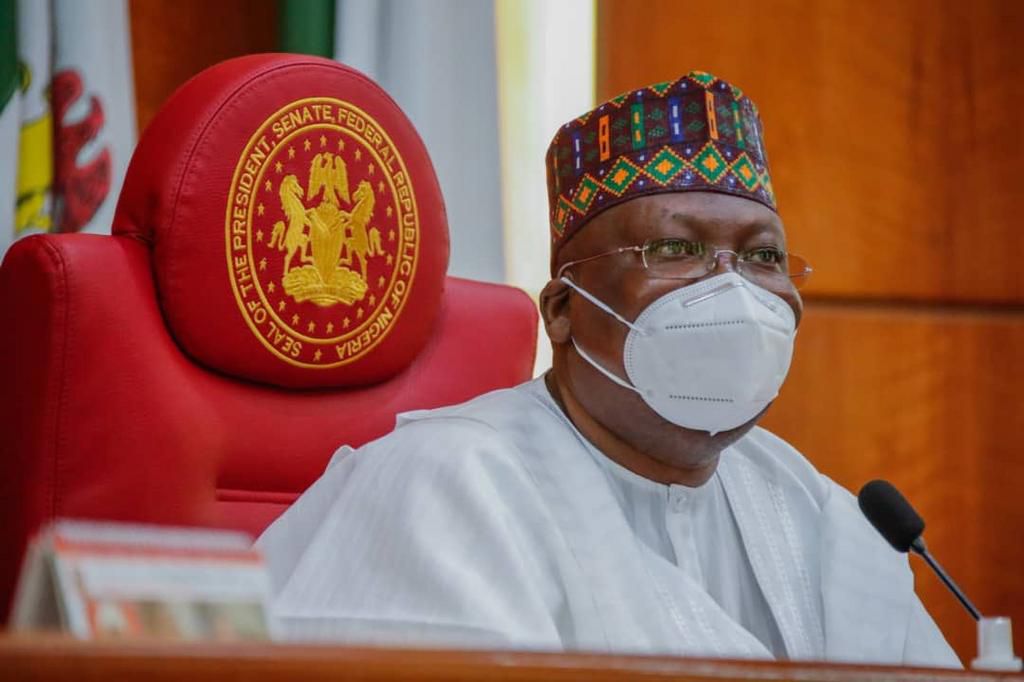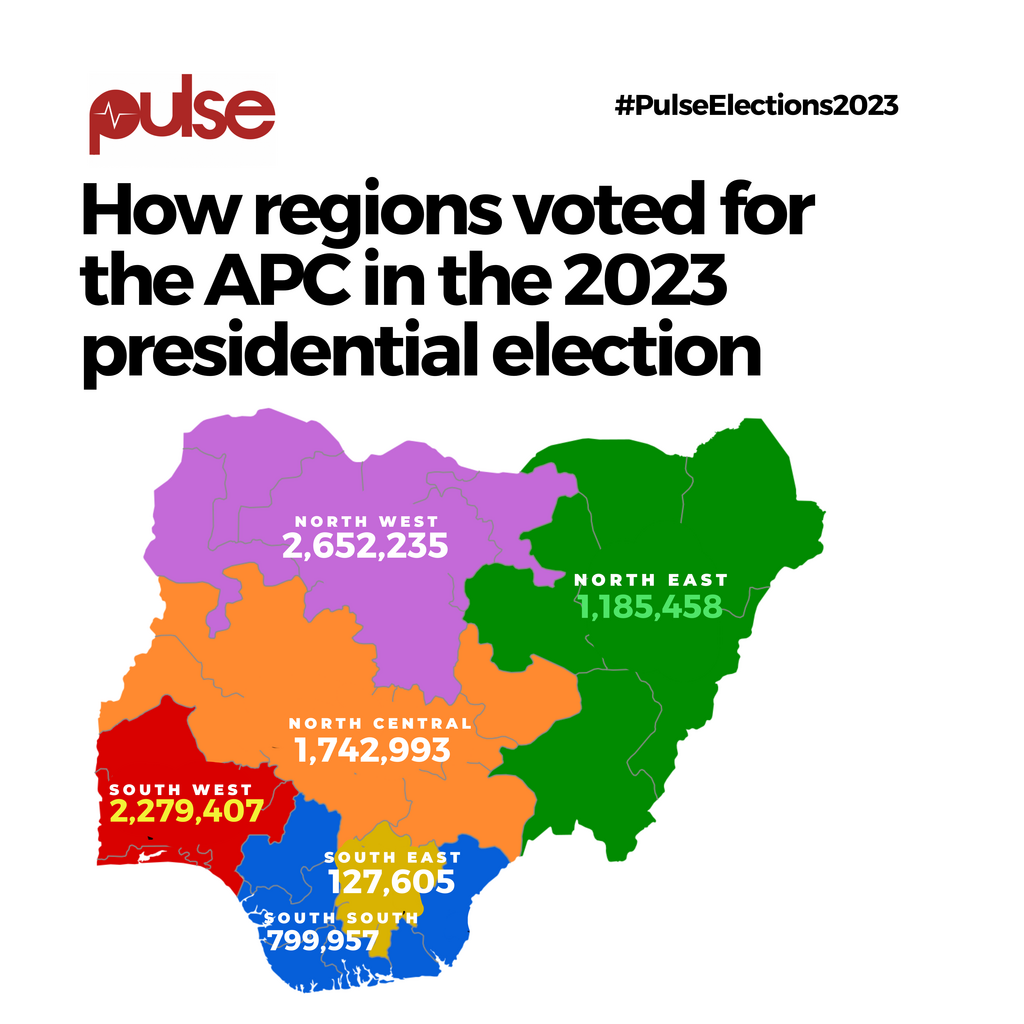Which region deserves to produce the next senate president?
)
The battle for the position of the President of the 10th Senate is on the front burner with contenders jostling and scheming to occupy the number three citizen spot.
Following the February 25 presidential and National Assembly elections, many lawmakers including the incumbent senate president, Ahmad Lawan, have been positioning themselves for the senate presidency seat.
Unlike what we’ve seen before, the emergence of the senate president for the 10th National Assembly will be predicated on a number of factors.

For those in the race, experience and competence count, but beyond that, other factors like religion, regional considerations and vote returns per region in the last presidential election will influence and determine who gets favoured for the coveted seat.
Lawmakers eyeing the senate presidency include Ahmad Lawan (Yobe - North-east), Ali Ndume, (Borno - Northeast), Sani Musa, (Niger - North-central), Barau Jibrin (Kano - North-west), Governor Dave Umahi (Ebonyi - South-east), Orji Uzor-Kalu (Abia - South-east) Osita Izunaso (Imo - South-east) and Godswill Akpabio (Akwa-Ibom - South-south).
Due to the peculiarity of the controversial ticket that brought about electoral victory for the ruling All Progressives Congress (APC), the argument about the next senate president is not so much about the right candidate but largely about the religion and region of the candidate.
For instance, the Muslim-Muslim ticket of the president-elect, Bola Tinubu, and vice-president-elect, Kashim Shettima, may have disqualified a Muslim lawmaker to emerge as the next senate president.
The idea behind this is that, since Tinubu and Shettima are Muslims, the number three citizen has to be a Christian for religious balance.

In its recommendation to the president-elect, the Progressive Governors Forum (PGF) has already advised that the senate presidency should be zoned to the South-east and South-south regions, where all the APC senators-elect are Christians.
More so, because Tinubu and Shettima are from the South-west and the North-east region respectively, the PGF also advised that the two regions should be excluded in the recommendations on the zoning of the senate presidency.
With the South-west and the North-east candidates likely to be excluded from the zoning arrangement for obvious reasons, there have been arguments for other regions jostling to produce the next senate president.
In the South-east, the former governor of Abia, Orji Uzor Kalu, Senator Osita Izunaso from Imo and Governor David Umahi of Ebonyi are the main contenders for the senate president’s seat.

For these three, the argument that a southern Christian should emerge as the president of the 10th Senate favours their candidacies, but if the negligible number of votes the APC got in their region in the last election is considered in the grand scheme of things, the trio may not near the seat in this political dispensation.
In the last presidential election, the South-east produced the least number of votes for the APC. The ruling party got a paltry 127,605 votes from the region.
In the South-south, Akpabio is a frontline contender and is believed to be one of the candidates in a pole position to take the seat.

Meanwhile, stakeholders from the North-west region have been demanding that the senate president must come from their zone. The argument for this is based on the fact that the APC garnered the highest number of votes from the region in the last election.
The party got 2,652,235 votes from the region comprising Jigawa, Kaduna, Kano, Katsina, Kebbi, Sokoto, and Zamfara.
Obviously, the Northwest is a strong political base for the ruling party, and the region is strongly making a case for itself because it has not produced a senate president since 1999.
Senator Jibrin, the lawmaker representing Kano North senatorial district, has shown interest in the senate president’s seat. The current Chairman of the Senate Committee on Appropriation seems to have the backing of some APC chieftains in the North to succeed Lawan.
However, it remains to be seen how his emergence would happen because Jibrin is a Muslim and that contravenes the clamour for a Christian senate president.
Although, there have been a clamour among some party chieftains that the position should be thrown open to all candidates but, for the religious and ethnic issues that came with the 2023 election to be addressed, the APC will have to make serious efforts to assuage concerns from all quarters.
So, to avoid the controversy that greeted the APC’s Muslim-Muslim ticket last year, it is important for the president-elect and his party to fashion out a zoning formula that will maintain an ethnic and religious balance without destabilising the polity.
)
)
)
)
)
)
)
)
)

)
)
)
![2026 Golden Globes: Teyana Taylor, Timothee Chalamet and the biggest winners [FULL LIST]](https://sportal365images.com/process/smp-images-production/pulse.ng/12012026/002666db-358d-4deb-9510-84cdb274ffda.png?operations=autocrop(112:112))
)
)